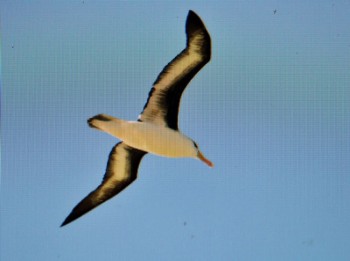José Marcus Godoy (Instituto de Radioproteção e Dosimetria, Rio de Janeiro, Brazil) and colleagues have published in the Journal of Environmental Radioactivity on 210polonium and 210lead in South Atlantic seabirds, including the ACAP-listed Black-browed Albatross Thalassarche melanophris and White-chinned Petrel Procellaria aequinoctialis.
The paper’s abstract follows:
“In this study, we report the 210Po and 210Pb concentrations of bone, muscle and liver samples that were obtained from twelve different marine bird species stranded on beaches in the central–north region of Rio de Janeiro State. Both radionuclides were highly concentrated in the liver samples; however, the lowest mean 210Po/210Pb activity ratio (1.3) was observed in bones compared with liver and muscle (16.8 and 13.8, respectively). Among the species that were studied, Fregata magnificens, with a diet based exclusively on fish, had the lowest 210Pb and 210Po concentrations and the lowest 210Po/210Pb activity ratio. The 210Po concentrations in Puffinus spp. liver samples followed a log-normal distribution, with a geometric mean of 300 Bq kg-1wet weight. Only two references pertaining to 210Po in marine birds were found in a Web of Science search of the literature, and each study reported a different concentration value. The values determined in this experiment are consistent with those in one of the previous studies, which also included one of the species studied in this work. No values for 210Pb in marine birds have been published previously.”

Black-browed Albatross, photograph by John Larsen
Reference:
Godoy, J.M., Siciliano, S., de Carvalho, Z.L., Tavares, D.C., de Moura, J.F. & Godoy, M.L.D.P. 2014. 210Polonium and 210lead content of marine birds from southeastern Brazil. Journal of Environmental Radioactivity 135: 108-112.
John Cooper, ACAP Information Officer, 15 July 2014

 English
English  Français
Français  Español
Español